Parking your car in your backyard may make it easier to get into your house or could protect it for longer storage times. Regardless of your reasoning, before you park your car in the rear of your home, you need to know if you're allowed to. To help you save time, we've done the research and can tell you if you're able to park in your backyard.
It is typically okay to park in your backyard if your vehicle is parked on concrete or another level surface. It's generally not acceptable to park on decorative rock or grass.
In some cases, you'll also need to have a fence of at least six feet to conceal the vehicle from view. In addition, parking in your rear yard shouldn't cause discomfort to your neighbors and the general public.
The rules for parking your car will vary depending on where you live. Keep reading to learn more about where it's acceptable to park your car, how long you can store it without moving, and more!
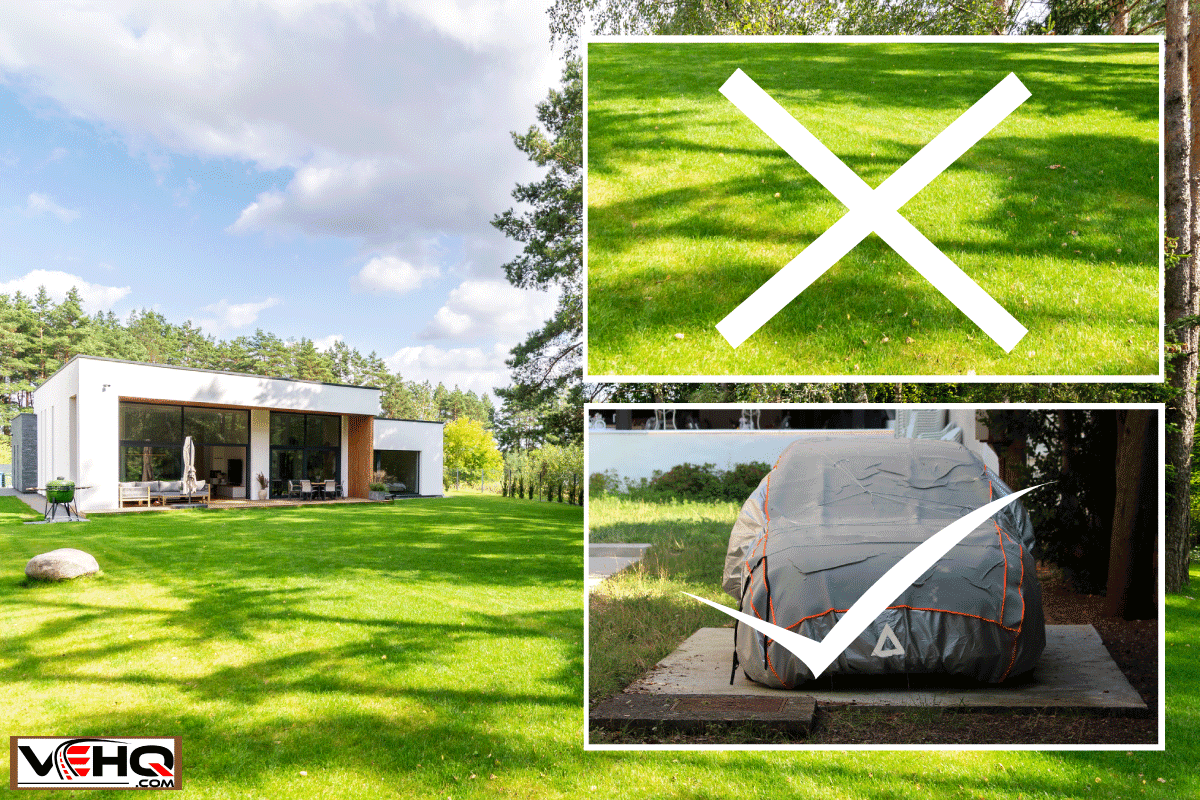
Parking in Your Backyard
It's possible to park your car in your backyard in the right circumstances. One of the first things to take into consideration is safety. Your backyard will need to have a driveway approach and parking space to park there.
A driveway approach is an area that allows vehicles to drive from a roadway to a private area. These paths generally need to be done in concrete, asphalt, or pavers.
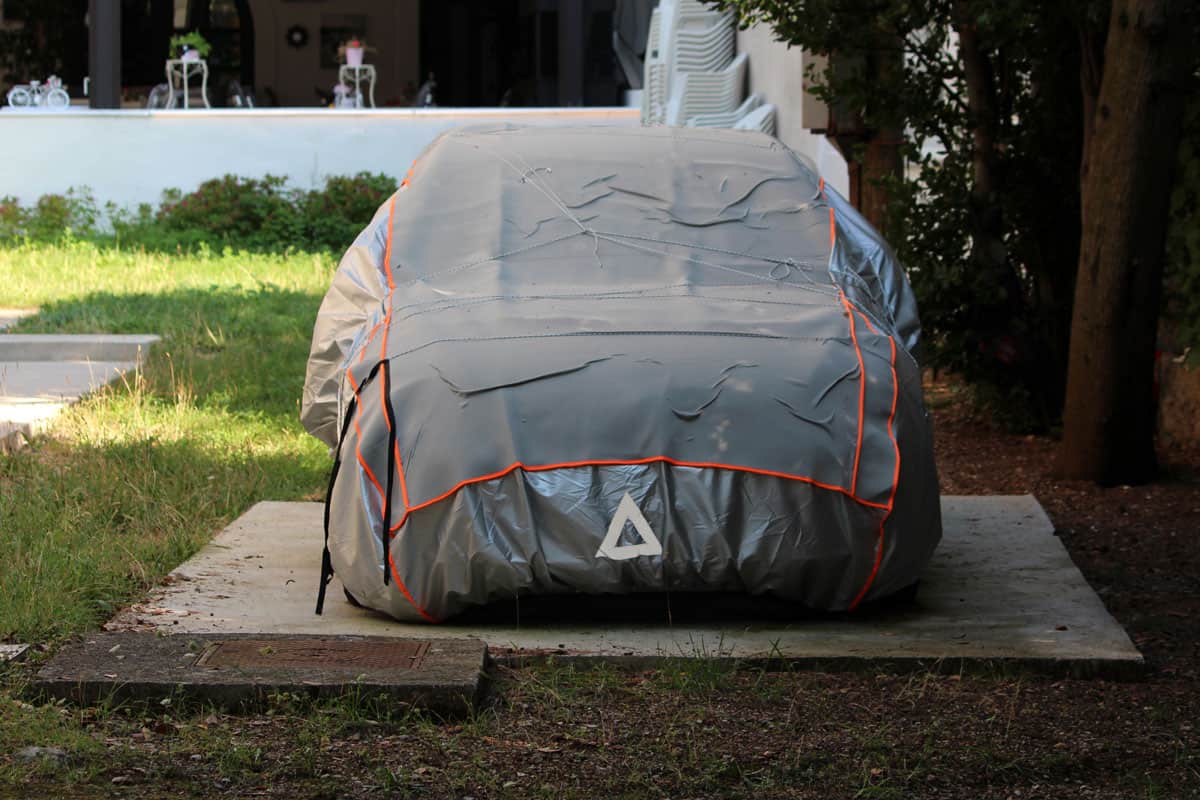
When using pavers, they have to be placed uniformly. Be sure to keep them less than a quarter-inch apart from each other. If your approach has significant gaps, it won't be up to code.
The next thing to consider is the area you'll be parking. Many cities have ordinances that state the flooring requirement for parking a car. You'll need to be sure that the property has an area of concrete, asphalt, or two-inch-thick pavers that span the entire width and length of the vehicle.
Fencing Requirements
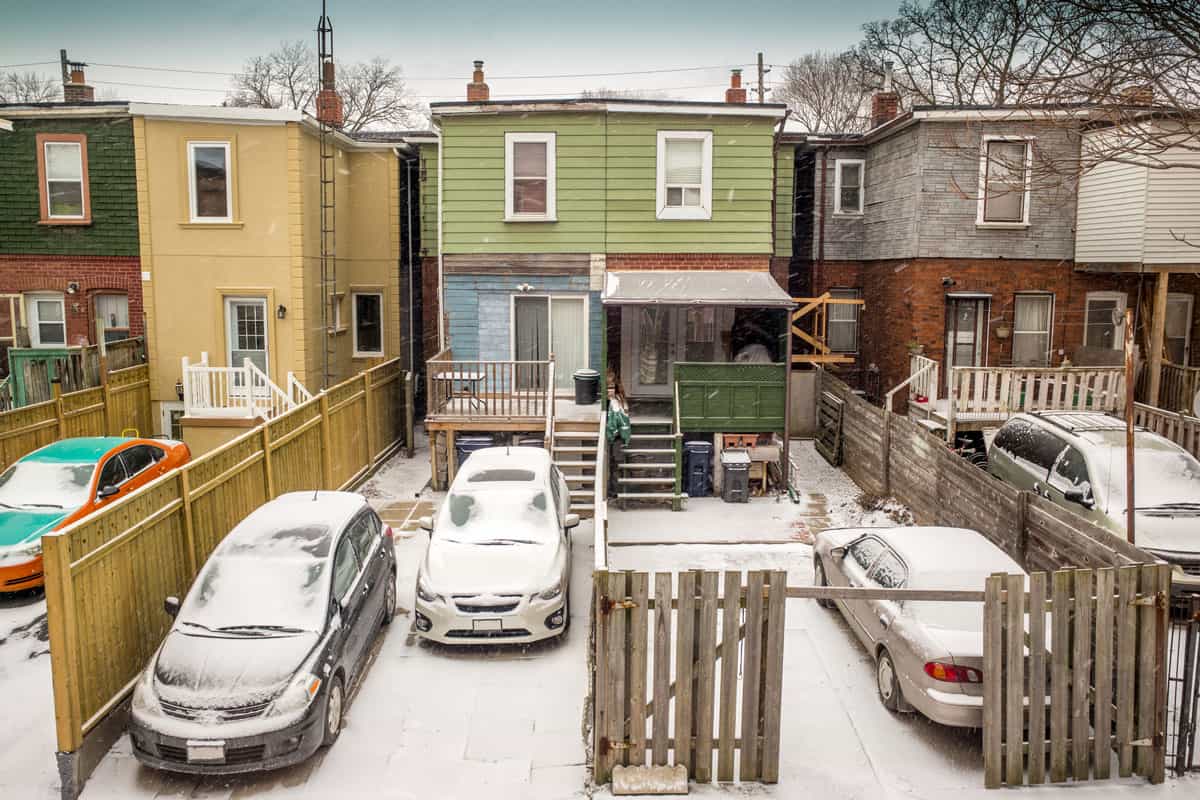
You may also need a fence to park your car behind. The erected structure should be at least six feet high. It should completely block your vehicle from the public's view on the street.
Keep in mind that you'll still need to be parking on an approved surface. Driving and parking on unpaved or dirt areas is an environmental hazard. Doing it kicks up dirt and debris that can be bad for some people's health.
Car Registration and Operability
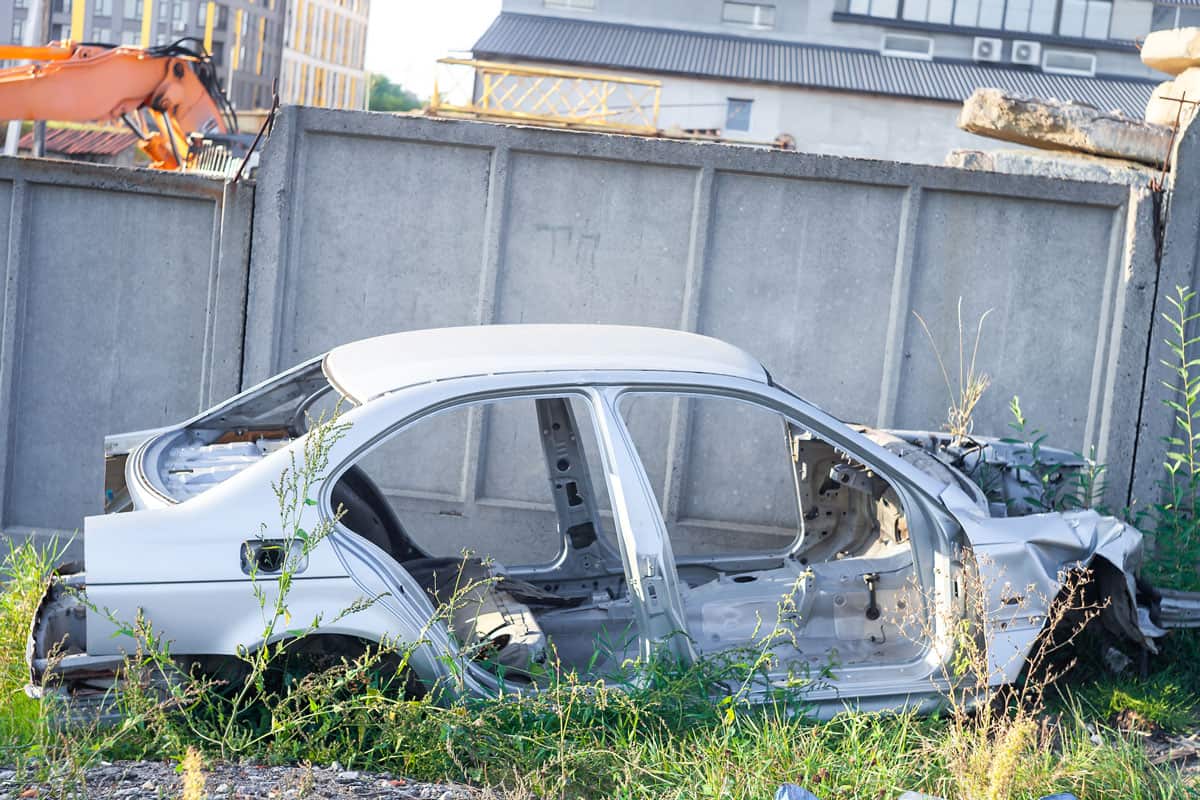
Another vital thing to consider is the car's current registration status. You should only park a vehicle with up-to-date tags, registration, and insurance in your yard.
In addition, your car must be in decent shape. You're not allowed to keep junked or dismantled vehicles on your property. Any automobile that isn't sitting on four inflated tires with all exterior components intact and can't run on its own will have to be removed or fixed.
An Exception to Car Conditions
There is an instance where you can keep a junked, wrecked, or dismantled vehicle on your property. You can store an inoperable vehicle on your property as long as it is completely concealed from the view of the public.
Depending on the state that you live in, a large fence may suffice. However, your best bet will be to store this type of machine inside a garage. Otherwise, you could be found in violation of the city code.
Potential Backyard Parking Problems
Those who don't follow the conditions for parking cars on residential property risk getting a nuisance violation. A nuisance is something that endangers, annoys, or causes discomfort to the general public.
You can get a nuisance violation for parking your car in your backyard. This can occur if you don't have it parked on the correct type of pavement.
Nuisance or code violations can also occur if parking in the rear yard will interfere with pedestrians, is an eyesore, or otherwise inconvenience your neighbors.
If you're found to be in violation of city codes, you'll need to either correct the issue or find a new area to keep your car. You will likely receive a letter telling you what needs to be fixed and when it needs to be completed. If you have any questions, you can always reach out to the department in charge of your case.
Building Permits
You'll probably need to obtain building permits to get a code correct backyard parking area. If you're only planning on putting pavers down, you can skip doing this.
However, a building permit will be required for most paving projects. This paperwork is also required when building fences out of certain materials and will be above a certain height.
The height requirements for needing a permit will vary depending on where you live. In general, anything under six feet won't require a permit. However, laws vary based on your living area and which part of the house you're building on. Front lawns tend to have shorter height requirements for requiring a permit.
Check with your local building department to collect the required applications. Be sure to submit and have them approved before you begin building. Not having the proper paperwork can cause you many problems down the road.
Is It Okay To Park On Grass?
In most cities, parking on grass is illegal, even on private property. Aside from that, parking there can damage the foliage and the car.
When you keep your car parked on a lawn, your tires will flatten the blades. They will also begin to compact the earth. It will become more difficult for grass to grow there. Eventually, it will die, and tire streaks will be throughout the area.
Aside from damaging plants, parking on grass can cause rust to form on your car. The extra moisture in these areas can be very damaging to your vehicle.
How Long Can I Be Parked In Front Of My House?
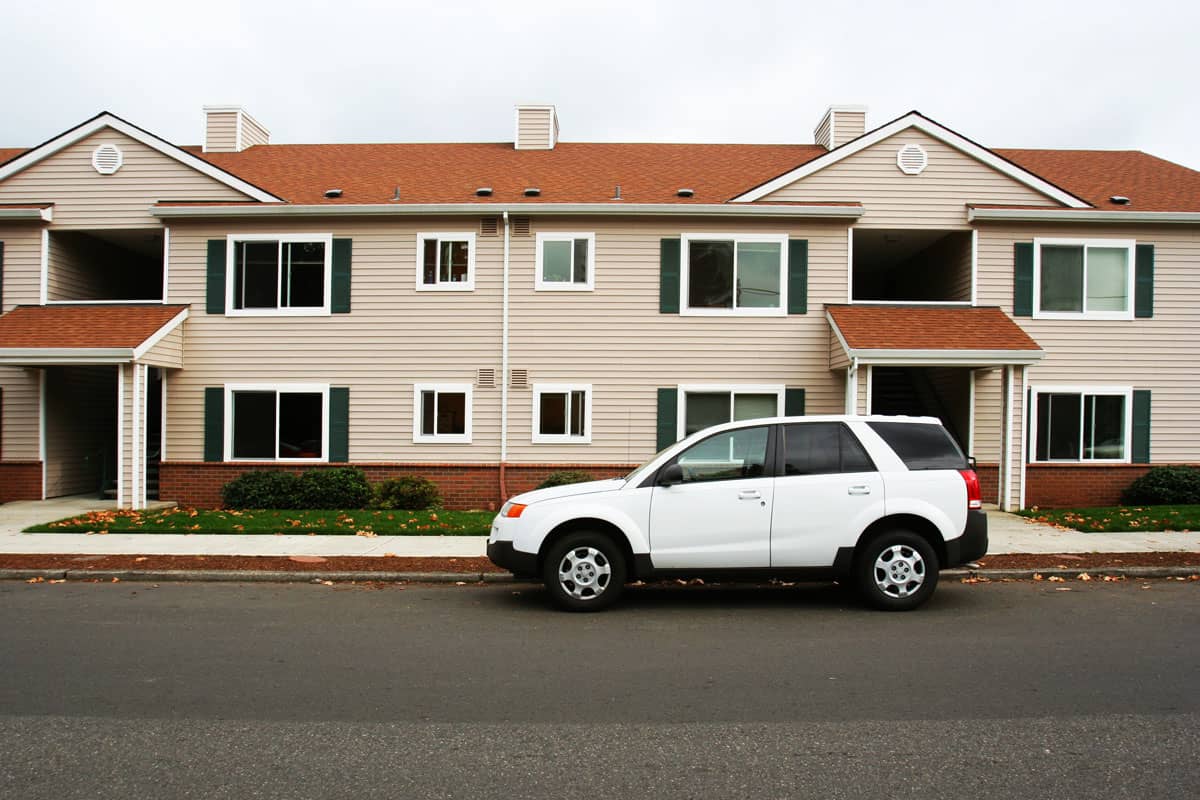
As long as your vehicle runs and is registered to you, you could technically park in front of your house for as long as you want. It's essential to ensure that your car is kept in good condition and registered to you.
If you don't plan on driving your car for an extended period of time, you should still try to drive it once every two weeks. Not running your vehicle for a while can cause the fluids to deteriorate, batteries to lose charge, and flat tires.
If the car is unregistered or doesn't have the proper paperwork, it will be considered abandoned if parked for more than 72 hours. At this point, you can report the car. In some instances, the vehicle will be towed. Otherwise, they will at least get a ticket.
Is it bad to leave your car outside?
It's not necessarily wrong to park your car outside. However, parking your car in a garage or carport does have some added benefits. These can protect your vehicle from potential cosmetic damages.
In addition, extreme weather can lessen the performance of the car. Battery life can be shortened in high temperatures. It can also take longer for the vehicle to heat up or cool down when using the air conditioning.
Parking outside can also cause damage to the tires in the form of dry rot. Dry rot can cause your wheels to be brittle and crack the tread and sidewall.
Finally, keeping your cars in a garage also protects you more from theft.
In Conclusion

In the right circumstances, parking in your backyard is entirely possible! Remember to only park on approved surfaces and to avoid blocking pedestrian areas. For the most up-to-date information, check your local city's laws on parking on storing vehicles.
Want more? Check out the posts below!
How to Create an RV Parking Pad at Home [In 5 easy steps]
Can you park an RV on the street? [Short Term RV parking advice]
